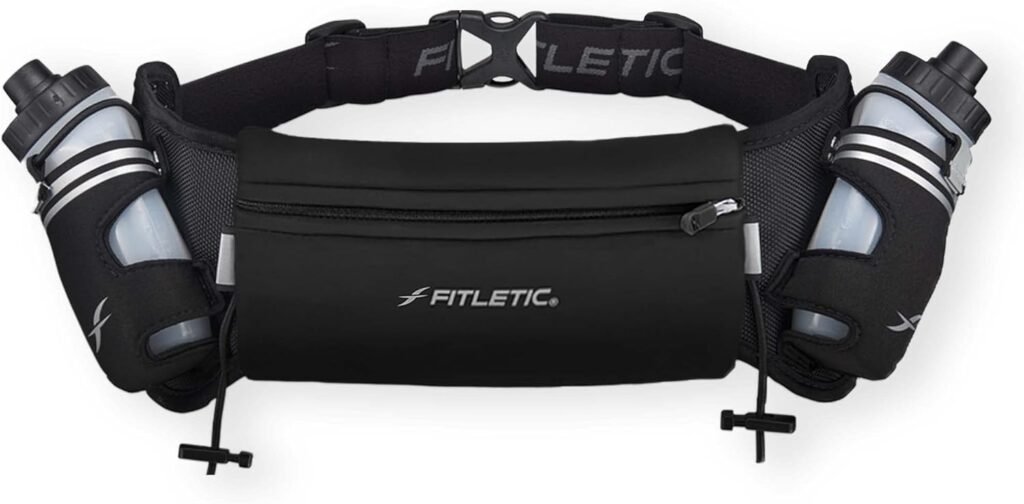Welcome, runners, to our guide on “Hydration Tips for Running in Hot Weather.” As temperatures rise and the sun beats down, staying properly hydrated becomes more crucial than ever for maximizing performance and ensuring safety during your runs. In this post, we’ll delve into the importance of hydration, discuss dehydration risks, and provide practical strategies to help you stay hydrated and thrive in hot weather conditions. So, lace up your shoes, grab your water bottle, and let’s dive in!
Stay Cool and Hydrated: Essential Tips for Hot-Weather Running
Running in hot weather presents unique challenges, especially when it comes to staying hydrated. As temperatures rise, your body’s need for water increases, and proper hydration becomes critical for performance and safety.

Running in Hot weather Why Proper Hydration Matters for Runners
. Performance Enhancement
- Fuel for Your Engine: Just like a car needs fuel to run efficiently, your body requires water to perform optimally. Hydration ensures that your muscles function smoothly, allowing you to maintain pace and endurance during runs.
- Temperature Regulation: When you run, your body generates heat. Sweating is the primary mechanism for cooling down. Adequate hydration helps regulate body temperature, preventing overheating.
2. Cognitive Function and Focus
- Brain Function: Dehydration affects cognitive abilities, including concentration, decision-making, and memory. As a runner, staying hydrated keeps your mind sharp, allowing you to make split-second decisions during races or training.
3. Injury Prevention
- Joint Lubrication: Proper hydration ensures that your joints remain lubricated. Dehydrated joints are more prone to wear and tear, leading to injuries like sprains or strains.
- Muscle Cramps: Dehydration increases the risk of muscle cramps. These painful contractions can disrupt your run and hinder performance.
4. Electrolyte Balance
- Sodium, Potassium, and More: Electrolytes (such as sodium and potassium) play a crucial role in maintaining fluid balance. Hydration helps replenish these essential minerals lost through sweat.
Risks of Dehydration During Exercise

1. Reduced Performance
- Sluggishness: Dehydrated muscles work less efficiently, leading to fatigue and decreased speed.
- Decreased Endurance: Without proper hydration, your endurance levels plummet, affecting your ability to complete long runs or races.
2. Heat-Related Illnesses
- Heat Exhaustion: Dehydration intensifies heat-related risks. Heat exhaustion symptoms include dizziness, nausea, and weakness.
- Heatstroke: Severe dehydration can lead to heatstroke—a life-threatening condition. Symptoms include confusion, rapid heartbeat, and high body temperature.
3. Impaired Recovery
- Delayed Recovery: Dehydrated muscles take longer to recover after intense workouts. Proper hydration accelerates the recovery process.
4. Mental and Emotional Impact
- Irritability: Dehydration affects mood and can make you irritable or anxious.
- Reduced Focus: Lack of hydration impairs mental clarity, hindering your ability to stay focused during runs.
How Much Fluid Do Runners Typically Lose During a Workout?

1. Sweat Rate Variability
- Individual Differences: The amount of fluid lost through sweating varies from person to person. Factors like body size, fitness level, and genetics play a role.
- Environmental Conditions: Hot and humid weather accelerates sweat production, leading to higher fluid loss.
2. Estimating Sweat Loss
- Sweat Rate Calculation: To estimate your sweat rate during a workout, follow these steps:
- Weigh Yourself: Weigh yourself before and after your run (without clothes).
- Calculate Weight Change: The difference in weight represents fluid loss.
- Convert to Fluid Volume: Each pound lost corresponds roughly to 16 ounces (about 500 ml) of fluid.
3. General Guidelines
- Hydration Goals: Aim to replace at least 80% of the fluid lost during exercise.
- Regular Hydration: Sip water throughout your run rather than waiting until you’re thirsty.
- Electrolyte Consideration: Sweat contains electrolytes (sodium, potassium). If your workout exceeds an hour, consider sports drinks or electrolyte supplements.
Signs of Dehydration: Running in Hot weather

Dehydration occurs when your body loses more fluid than it takes in, leaving you without enough water to carry out essential functions. Recognizing the signs early is crucial for maintaining good health. Let’s explore the common symptoms of dehydration:
- Thirst: Feeling thirsty is a natural signal that your body needs more water. However, keep in mind that thirst isn’t always an early indicator. Many people, especially older adults, may not feel thirsty until they’re already dehydrated.
- Dry Mouth: A parched or dry mouth is a classic sign of dehydration. When you’re lacking adequate fluids, your saliva production decreases, leading to dryness.
- Dark-Colored Urine: Pay attention to the color of your urine. Dark yellow or amber urine suggests dehydration. Ideally, your urine should be pale yellow.
- Fatigue: Dehydration can leave you feeling tired and drained. Lack of proper hydration affects your energy levels and overall well-being.
- Dizziness: Insufficient fluid levels can lead to dizziness or light headedness. If you suddenly feel unsteady, consider whether you’ve been drinking enough water.
- Headache: Dehydration may trigger headaches. Staying hydrated can help prevent or alleviate them.
Remember, anyone can become dehydrated, but certain groups are more vulnerable. Young children, older adults, and individuals with chronic conditions or those taking medications that increase urination need to be especially cautious. If you notice any of these signs, take action promptly by drinking more fluids. Severe dehydration requires immediate medical attention.Stay hydrated, and listen to your body—it’s your best guide to maintaining optimal health!
Hydration Strategies Before Running in Hot weather

1. Pre-Run Hydration
Why is it crucial? Before lacing up your running shoes, ensuring proper hydration is essential. Adequate fluid intake before your run sets the stage for optimal performance and helps prevent dehydration during your training or race.
How much should you drink? Follow this simple guideline:
- Timing: Aim to hydrate about 2 hours to 1 hour before your run.
- Quantity: Consume approximately 16 ounces (473 ml) of water or a sports drink during this window. This allows your body time to absorb and distribute the fluid effectively.
2. Electrolyte Balance: Water vs. Sports Drinks
Water:
- Pros: Pure, calorie-free, and readily available.
- Cons: Lacks essential electrolytes (sodium, potassium, magnesium) that play a vital role in muscle function and hydration.
Sports Drinks:
- Pros: Contain electrolytes, especially sodium, which helps retain fluid and maintain balance.
- Cons: May have added sugars and calories.
Guidance:
- For shorter runs (less than an hour), water suffices.
- For longer or more intense runs:
- Sports drinks can be beneficial to replenish lost electrolytes.
- Look for options with moderate sugar content or consider homemade electrolyte solutions.
Remember, individual needs vary, so listen to your body. Drink to thirst, maintain consistent hydration during your run, and find what works best for you.
During-Run Hydration Techniques: Running in Hot weather

1. Carrying Water

Options for Carrying Water:
- Handheld Bottles: These compact bottles have a strap that allows you to hold them comfortably while running. They’re ideal for shorter distances or when you prefer minimal gear.
- Hydration Belts: These belts come with small water bottles attached. They sit snugly around your waist, distributing the weight evenly. Great for mid-distance runs.
- Hydration Vests: Designed for longer runs or trail races, these vests have multiple pockets to carry water bottles or hydration bladders. They provide hands-free convenience.
2. Aid Stations
Utilizing Water Stops:
- Plan Ahead: Know where aid stations are located along your route. Most races and organized runs have designated water stations.
- Stay Consistent: Aim to hydrate at every aid station, especially during longer runs. Don’t wait until you’re thirsty; take small sips regularly.
- Grab-and-Go: As you approach an aid station, slow down slightly. Grab a cup of water or sports drink, take a few sips, and keep moving. Discard the cup in a designated bin.
- Electrolytes: Some aid stations offer sports drinks with electrolytes. Consider alternating between water and sports drinks to replenish lost sodium and maintain balance.
Remember, individual needs vary. Experiment during training runs to find what works best for you. Staying hydrated during your run enhances performance and helps prevent fatigue. Happy running!
Post-Run Hydration Recovery

1. Replenishing Fluids After a Run
How Much and When?
- Timing: Rehydrate promptly after your run. Aim to consume fluids within 30 minutes to 1 hour post-exercise.
- Quantity: Replace the fluids you’ve lost during your run. A general guideline is to drink 16 to 24 ounces (473 to 710 ml) of water or a sports drink. Adjust based on your sweat rate and the duration of your run.
2. Including Water-Rich Foods in Your Post-Workout Meal
Why Water-Rich Foods? Running in Hot weather
- These foods not only hydrate but also provide essential nutrients.
- They aid in muscle recovery and overall well-being.
Examples of Water-Rich Foods:

- Watermelon: Composed of over 90% water, watermelon is a refreshing choice.
- Cucumber: Crisp and hydrating, cucumbers are low in calories and high in water content.
- Oranges: Besides hydration, oranges offer vitamin C and antioxidants.
- Celery: Crunchy and hydrating, celery is a great addition to your post-run snack.
- Berries: Blueberries, strawberries, and raspberries contain water and valuable nutrients.

Remember, individual needs vary. Listen to your body, and prioritize rehydration. Combine fluids with nourishing foods to optimize recovery. Cheers to staying hydrated and feeling great!
Conclusion
In summary, proper hydration is paramount for runners in hot weather. By understanding dehydration risks, recognizing signs, and implementing effective hydration strategies, runners can optimize performance and minimize health risks. However, individual needs vary, so it’s important to listen to your body and seek professional advice when needed. Stay hydrated, stay safe, and keep running strong!
Reference:
https://www.runnersworld.com/uk/nutrition/a761780/rws-complete-guide-to-hydration/
https://bing.com/search?q=Hydration+Strategies+Before+Running
https://www.verywellfit.com/fuel-and-hydration-tips-for-runners-6665791
https://sportruns.com/hydration-strategies/
https://thewiredrunner.com/what-to-drink-before-a-run-stay
https://extension.usu.edu/nutrition/research/maintaining-hydration-a-guide-for-endurance-runners



